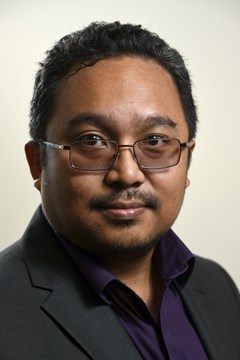In 2018, Dr Halim Alwi, Senior Lecturer in the College of Engineering, Mathematics and Physical Sciences at the University of Exeter, was awarded an Industrial Fellowship. These Royal Academy of Engineering fellowships strengthen links between universities and industry as well as encouraging new collaborative partnerships.
Dr Halim Alwi has over 15 years’ research experience in the field of control systems engineering, specialising in the aerospace sector. His Industrial Fellowship assignment was to work with Prismatic Ltd developing a flight control system for high-altitude long-endurance (HALE) unmanned aerial vehicles (UAVs). His research would help address flight control challenges such as ensuring low power consumption and efficient functioning while flying in extreme conditions.
Dr Alwi has been working for more than a decade on control and estimation, focusing on fault tolerant sliding mode schemes with aerospace applications. His fellowship work on Prismatic’s flight controller systems contributed to the flight control implemented in the company’s two, full scale, PHASA-35, solar powered, HALE UAVs that have recently been delivered to the main customer.
Dr Alwi’s analysis work on the project has given Prismatic legacy software containing modelling, simulation and control systems. This collaboration has resulted in a long-term relationship between the company and the University of Exeter. It has led to a knowledge transfer partnership project funded by Innovate UK to further develop the control software for solar powered HALE UAVs.
Future joint research is planned to design a resilient flight control that would increase HALE UAVs’ survivability in the event of fault or failure. This fault tolerant mechanism would enable the independent unmanned vehicle to operate autonomously without maintenance, user intervention, refuelling or landing despite the presence of a fault or failure.
About Industrial Fellowships
The Royal Academy of Engineering Industrial Fellowships scheme enables mid-career academics and industrialists to undertake a collaborative research project in either an industrial or academic environment, where one party would host the other.

